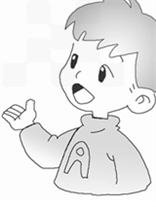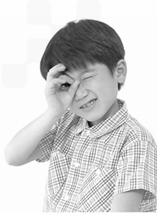题目内容
|
| 1-5 BACBA 6-10 BACBA |

练习册系列答案
相关题目
| 选词填空。 | |
| |
| My friend Elisa owns the largest collection of Barbie dolls I have ever seen. She has altogether 1. ________ more than 300 Barbie dolls. She treats them more as good friends than dolls. She is 2. ________ with them every day. For example, she curls their hair and keeps their clothes 3. ________ clean. In fact, Elisa's whole family takes good care of the collection. Her mother sews beautiful dresses 4. ________ the dolls and last year her father built a beautiful display glasshouse. It is big enough for the entire collection. Elisa is now 5 years old. More Barbie dolls will not stop her collection 5. ________ she is ten years old. Elisa says that some day when she is old 6. ________, she will sell her Barbie doll collection for a large sum of money which will be enough for her 7. _____ and even her marriage. It sounds wonderful, doesn't it? |
| 完型填空 | ||||
| A: 1 , Jim!There is a big bag 2 the tree. B: What's 3 it? A: I don't know.I 4 there are some books. B: 5 , I think 6 a football. A: Let's go and 7 it. B: Ah,there are 8 and a football. A: Oh,there is a name on the bag David Smith. B: It's 9 Let's find him 10 give him the bag. | ||||
|
| 根据表格中的内容选出最佳答案。 | |||||||||||||||||||||||||
| |||||||||||||||||||||||||
| 1. Beijing is ______ in spring. | |||||||||||||||||||||||||
| A. cold B. warm and windy C. hot D. snow | |||||||||||||||||||||||||
2.  —What is the weather like in Harbin in summer? —What is the weather like in Harbin in summer?—It's ______. | |||||||||||||||||||||||||
| A. windy B. cool C. cold D. very hot | |||||||||||||||||||||||||
| 3. —Is it hot in Beijing in summer? —______. | |||||||||||||||||||||||||
A. Yes, it is  B. No, it's cold C. No, it's warm D. I don't know | |||||||||||||||||||||||||
4. —What' s the weather like in Kunming in winter? s the weather like in Kunming in winter?—It's ______. | |||||||||||||||||||||||||
| A. warm B. cold C. snowy D. cloudy | |||||||||||||||||||||||||
| 5. —What's the weather like in winter in Wuhan? —It's ______. | |||||||||||||||||||||||||
| A. very cold and snowy B. warm and windy C. hot and rainy D. not too cold |
 brother go to school
brother go to school rter past eight. They have 5 at school. In the
rter past eight. They have 5 at school. In the Feifei's brother 8
Feifei's brother 8 
 se boy. I’m twelve. My school is No. 5 Middle School. I’m in C__ 2 ___ 2, Grade 1. That woman is Mrs. Brown. She is an English t__ 3___. That girl is her daughter, Liz. They are from England. Liz and I a__ 4 ___ in the same class, We are good f__ 5 ___.
se boy. I’m twelve. My school is No. 5 Middle School. I’m in C__ 2 ___ 2, Grade 1. That woman is Mrs. Brown. She is an English t__ 3___. That girl is her daughter, Liz. They are from England. Liz and I a__ 4 ___ in the same class, We are good f__ 5 ___. 
 m
m